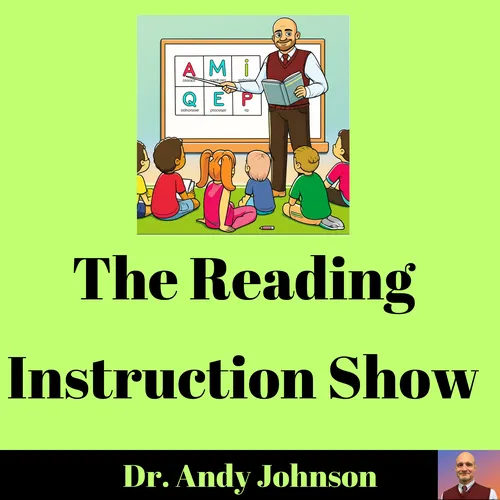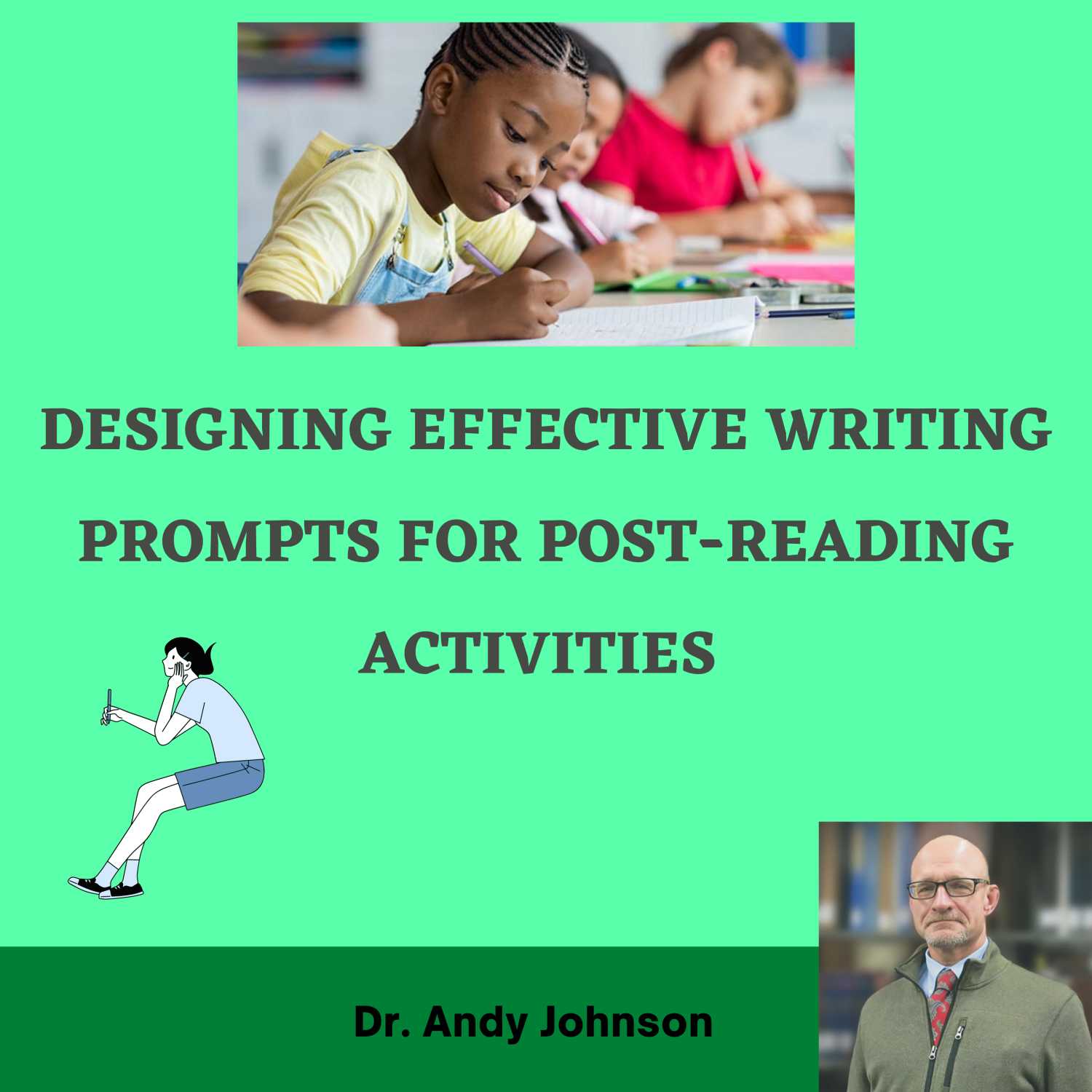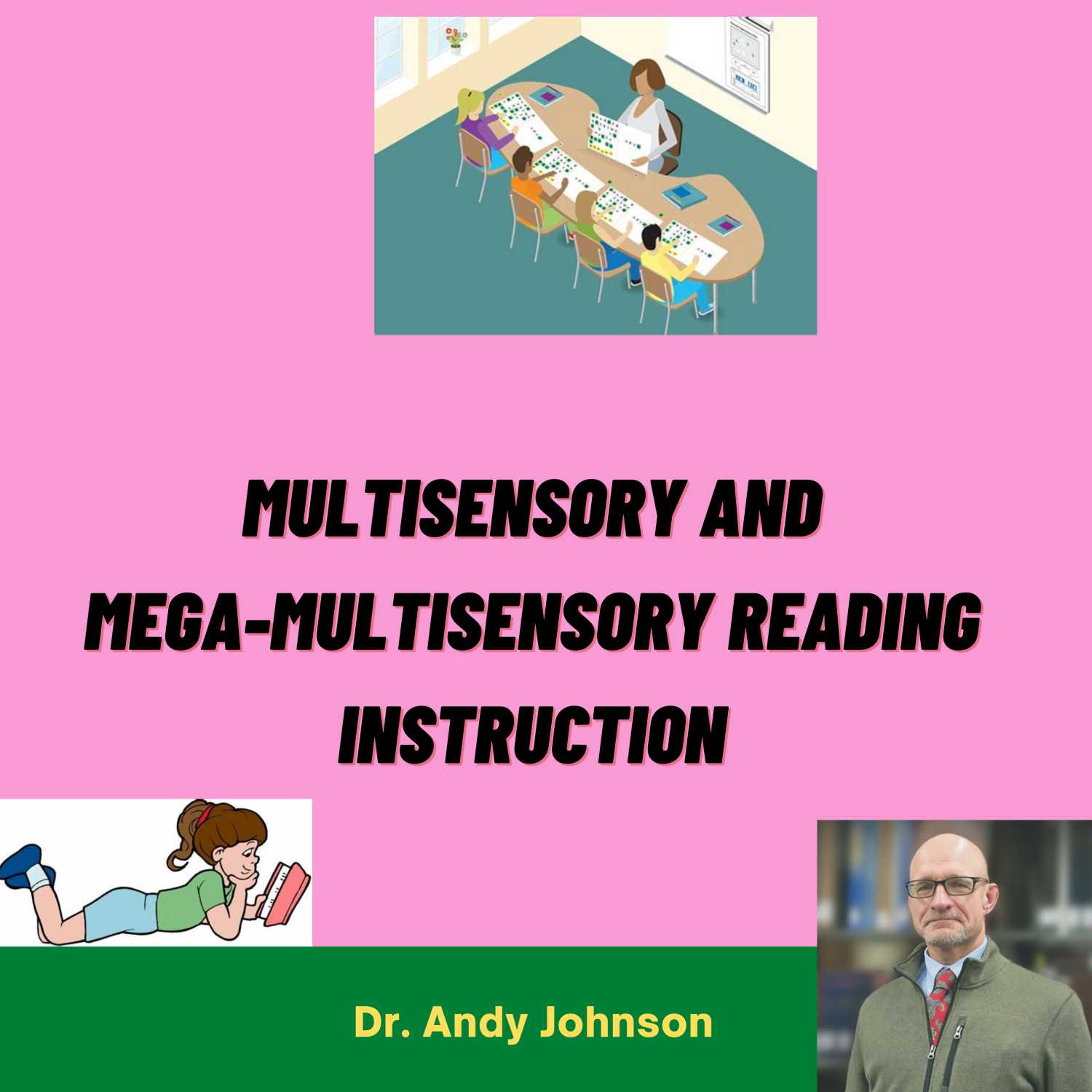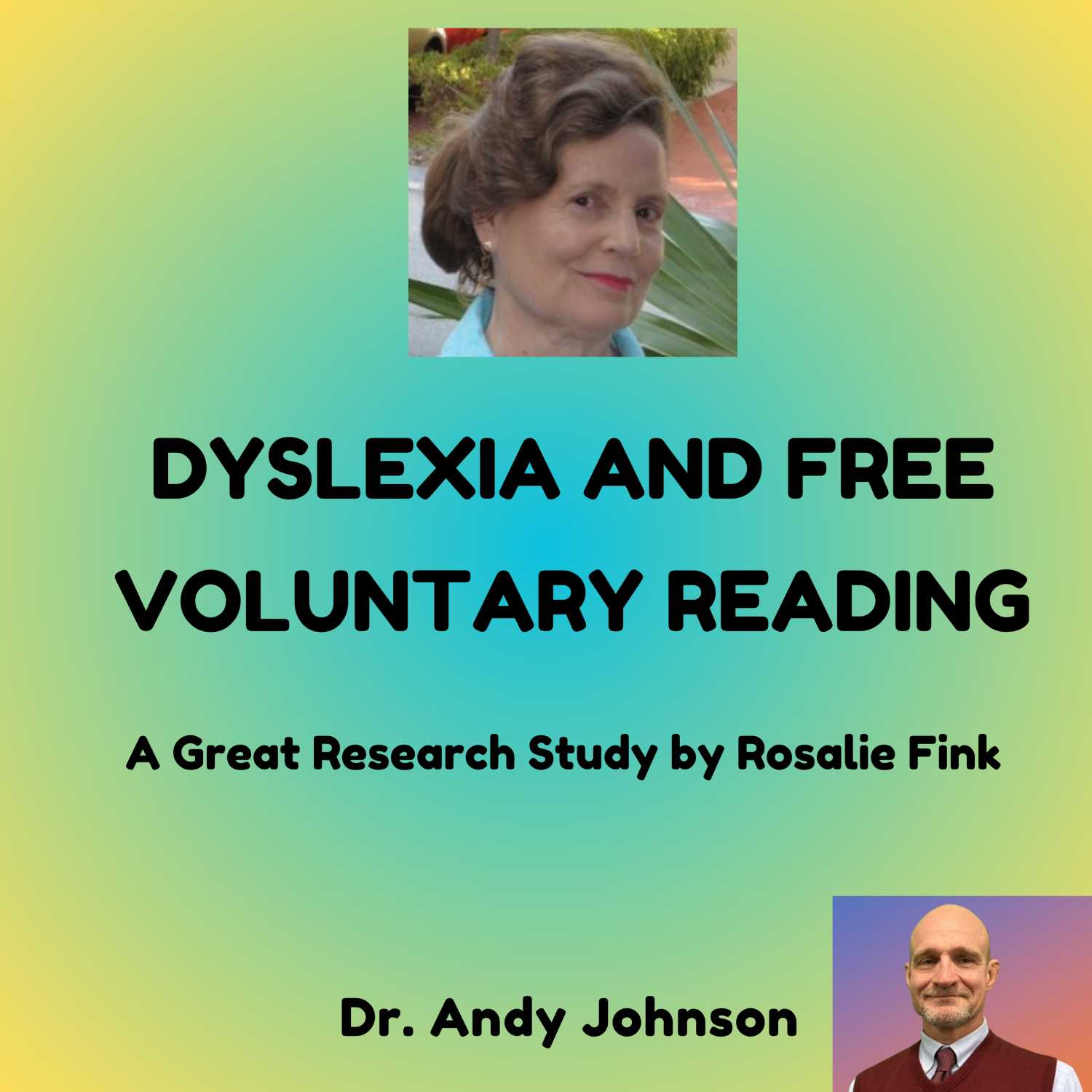
The Reading Instruction Show
The Reading Instruction Show is a podcast about reading instruction (and other things) with a little bit of attitude. There is plenty here to inform and entertain all. And, by the way, I'm not trying to sell any books. I don't have any curriculum or programs to market. I don't accept speaking fees. And, I don't ever want to be a consultant.
- Update frequency
- every 8 days
- Average duration
- 15 minutes
- Episodes
- 295
- Years Active
- 2019 - 2025

DESIGNING EFFECTIVE WRITING PROMPTS FOR POST-READING ACTIVITIES
There is both a science and an art to creating effective writing prompts for post-reading activities.

READING INSTRUCTION IN SPECIAL ED WORLD: WE'VE GOT PROBLEMS
This study examines four interconnecting elements within Special Ed World: (a) reading instruction, (b) data-resistant theoretical constructs, (c) paradigmatic parochialism regarding what is consider…

DYSLEXIA: MULTISENSORY INSTRUCTION
.An individual Orton-Gillingham course costs over $2,000 and associate level training costs $4,000 plus $250 for materials. There are various levels of training and certification that can be purchase…

FIDELITY OR EDUCATIONAL MALPRACTICE?
Fidelity is a term often misused by the designers of commercially-prepared reading interventions and by decision-makers outside the classroom. Teachers are told they must implement an evidence-based …

DYSLEXIA AND FREE VOLUNTARY READING (FINK STUDY)
Rosalie Fink (Fink, 1996; Fink, 1998) Interviewed successful men and women with dyslexia to see why they were able to be so successful despite their profound “disability”. She discovered that all the…

DYSLEXIA: INTERVENTIONS AND CLASSROOM SUPPORT
Intervention sessions for students with dyslexia should occur no less than four days a week and should include variations of seven elements: (1) word work, (2) word identification, (3) maze and cloze…

EYE MOVEMENT DURING READING
As you read sentences on a page your eyeballs do not move from left to right, letter-to-letter, word-to-word in a straight, steady line. If you were able to attach little lasers to your eyeballs you …

DYSLEXIA, THE INTERNATIONAL DYSLEXIA ASSOCIATION, AND ORTON-GILLINGHOAM
This is my 3rd podcast related to dyslexia. It addresses the International Dyslexia Association and Orton-Gillingham reading "instruction" and state laws requiring a certain type of reading instructi…

LANGUAGE EXPERIENCE ACTIVITIES
Language experience activities are an effective strategy to use with beginning level readers. Here students dictate an experience or story to the teacher. The teacher then records what students say. …

THE IMPORTANCE OF READING PRACTICE FOR ALL STUDENTS
Reading practice is incredibly important. Extensive reading has been linked to improvement in general knowledge, vocabulary, spelling, verbal fluency, and reading comprehension. Also, the amount of r…

DYSLEXIA: INTERVENTIONS AND INSTRUCTION
Students with dyslexia need more intense versions of the types of reading instruction that occurs within a general education setting. Intensity here refers to (a) more time, (b) more time-on-task, (c…

UNDERSTANDING DYSLEXIA
Depending on what study is cited and what definition of reading and reading deficiency is used, anywhere from 6% to 20% of students are what might be called “struggling readers”. Also depending on st…

A STORY ABOUT THE VALIDITY OF READING ASSESSMENT INSTRUMENTS
When assessment looks different from instruction and practice, you will often get results that under-represent students’ actual ability. Removing a reading event from its meaningful context during as…

TEACHER PREPARATION - INTERVIEW WITH DR. STEVEN REUTER
This is an insightful podcast looking at teacher preparation programs.

TWO APPROACHES TO EARLY LITERACY INSTRUCTION (AGES 3, 4, AND 5)
There are two basic approaches to early literacy instruction: A skills-based approach and a child-centered approach. The podcast describes each.

WORD IDENTIFICATION: MORPHEMIC ANALYSIS
There are four basic word identification strategies: (a) morphemic analysis, (b) context clues, (c) analogy, and (d) phonics. Direct and explicit instruction related to all four strategies should be…

READING INSTRUCTION FOR BEGINNING AND STRUGGLING READERS: SIGHT WORDS
This short podcast describes what sight words are, and how they should be assessed.

ESSENTIAL LEARNING THEORIES: THEORIES, LEARNING, AND LEARNING TO TEACH
This podcast describes and explains theories in the context of education and education research, human learning, and four types of knowledge necessary to become and expert teacher.

WHAT YOUR EYES DO DURING READING
As you read this page your eyes do not move from left to right, letter-to-letter, word-to-word in a straight, steady line. Your brain simply gives the impression that they do. Eye movement research…

READING INTERVENTIONS, FIDELITY, AND EDUCATIONAL MALPRACTICE
While this concept of fidelity may be appropriate for experimental research where control and treatment groups need to follow strict parameters in order to isolate a variable; it is neither effective…